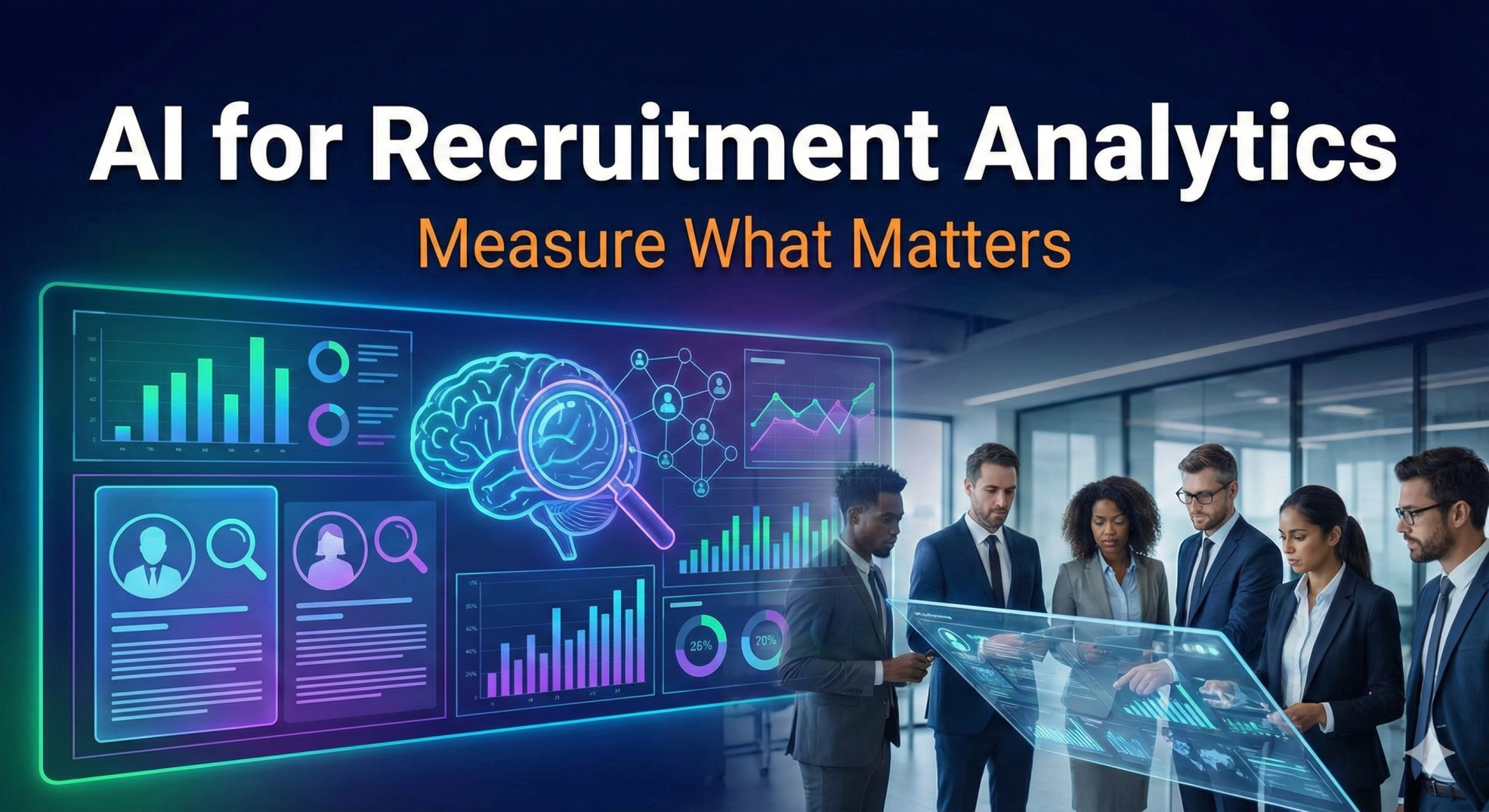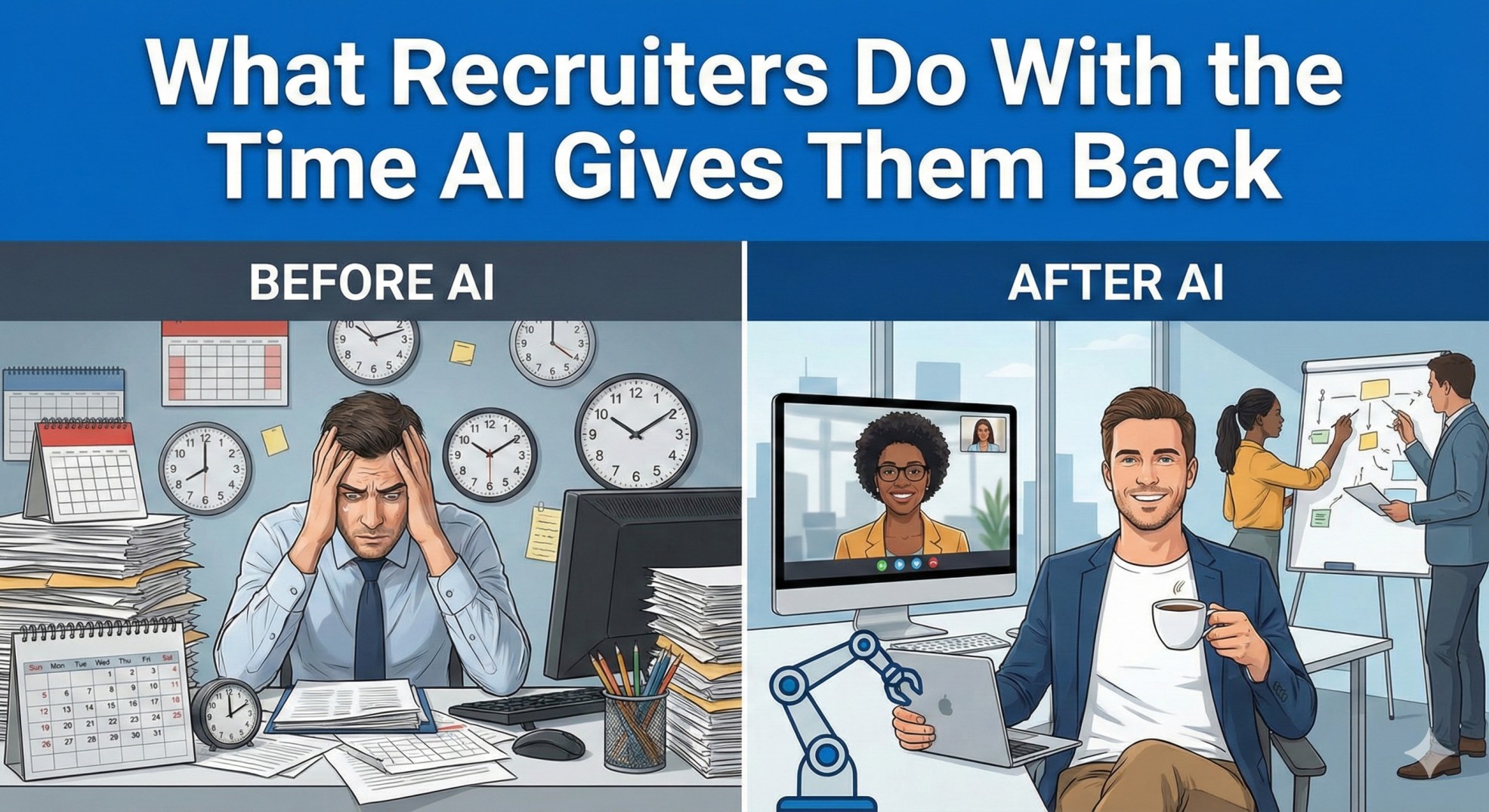Industry 4.0 and Talent Acquisition
.webp)
Industry 4.0, often referred to as the Fourth Industrial Revolution, represents a significant transformation in the way industries operate and produce goods. It's characterized by the integration of digital technologies, data-driven decision-making, and automation into various aspects of manufacturing and production.
It includes the use of the Internet of Things (IoT), Industrial Internet of Things (IIoT), Cyber-Physical Systems (CPs), Cloud Computing, and Artificial Intelligence (AI). Industry 4.0 is impacting various sectors, including manufacturing, logistics, healthcare, and more. Its goal is to increase efficiency, reduce costs, improve product quality, and enable greater flexibility and customization in production processes.
Companies that have invested in attracting, training, and retaining the right talent to suit the needs of the fourth industrial revolution have been able to build a significant competitive advantage in today's rapidly evolving business landscape.
In this article, we will look at aspects that companies could consider in order to source a more robust, more agile workforce.
AI and Machine Learning have revolutionized the way talent acquisition professionals identify and source candidates. Recruiters can now analyze vast amounts of data to find the most suitable candidates for specific job roles. These technologies can match candidate profiles with job requirements, enabling more efficient and accurate candidate sourcing. As a result, recruiters can identify top talent faster and with greater precision.
On the CBREX Marketplace, you can enhance your job postings with the help of ‘Sourcing Guidelines’ and ‘Screening Questions’ which help you weed out inefficient resumes.
With the help of interoperable systems wherein different systems are able to talk to each other, recruiters are now able to access valuable data, insights, and analytics tools. By harnessing data-driven insights, recruitment professionals can make informed decisions about talent acquisition strategies. They can track key performance indicators, measure the success of various recruitment channels, and adjust their approaches accordingly. Data-driven decision-making improves efficiency and enhances the overall quality of hires.
While Industry 4.0 will undoubtedly change the nature of work in manufacturing, it will also create new high-skilled jobs. For instance, there will be an increased demand for skilled workers who can operate and maintain the advanced machinery and equipment used in smart factories. There will also be an increased demand for software developers, data analysts, and other technology-related roles. Professionals skilled in AI, ML, IoT, Blockchain, Cloud Computing, Robotics, and 3D manufacturing will find an advantage during the adoption of Industry 4.0. Another example is the burgeoning demand for prompt engineers, who are emerging as key players in the development and optimization of AI models as artificial intelligence (AI) continues its evolution and becomes an integral part of various industries.
In addition to the new job roles listed above, Industry 4.0 is also changing the skills required for existing jobs. For example, production workers will need to learn how to operate and maintain automated equipment. Engineers will need to be able to design and implement smart factories, while managers will need to be able to lead and manage a workforce that is increasingly reliant on technology.
Overall, Industry 4.0 is transforming the world of work and creating new opportunities for people with the right skills. As a result, talent acquisition professionals need to be able to identify and assess candidates with the skills that are in demand. Citing data from Indeed, the report indicates that job postings related to GAI have witnessed a nearly 250% increase from July 2021 to July 2023.
In Industry 4.0, where automation and technology are prevalent, soft skills play a crucial role in enhancing human-machine collaboration, innovation, and problem-solving. For example, the ability to communicate complex technical concepts clearly or creatively brainstorm solutions to unexpected issues can greatly influence an employee's success in a tech-driven environment.
In the era of Industry 4.0, the need for tech-savvy talent is paramount. Talent Acquisition professionals must go beyond conventional qualifications when evaluating candidates. They must seek individuals who not only possess technical expertise but also demonstrate a capacity to seamlessly navigate and innovate within a technology-centric landscape. Adaptability and a penchant for continuous learning are vital attributes, as they empower organizations to harness technology effectively, remain competitive, and excel in an environment where technological prowess is the linchpin of success.
As we navigate the complex terrain of Industry 4.0, talent acquisition professionals must evolve, adapting to new paradigms and embracing the multifaceted requirements of the modern workforce. The success of organizations in this era hinges on their ability to identify and nurture talent that can thrive in the digital age. It's not just about filling positions; it's about orchestrating the symphony of skills needed to build a brighter future for businesses in the fourth industrial revolution.

.jpg)






